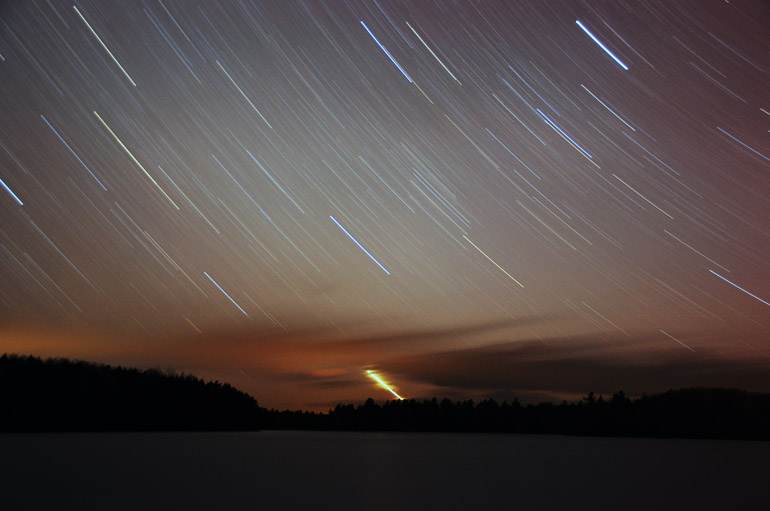
Down East Maine's dark sky affords some magnificent stargazing. At home in Princeton, I could lie on a dock for hours, just watching the heavens, catching the shimmer of an occasional meteor and the flicker of a low-flying lightning bug. Above, the planet Venus sets, showing up as the brightest streak on the horizon in this whopping 22-minute exposure.
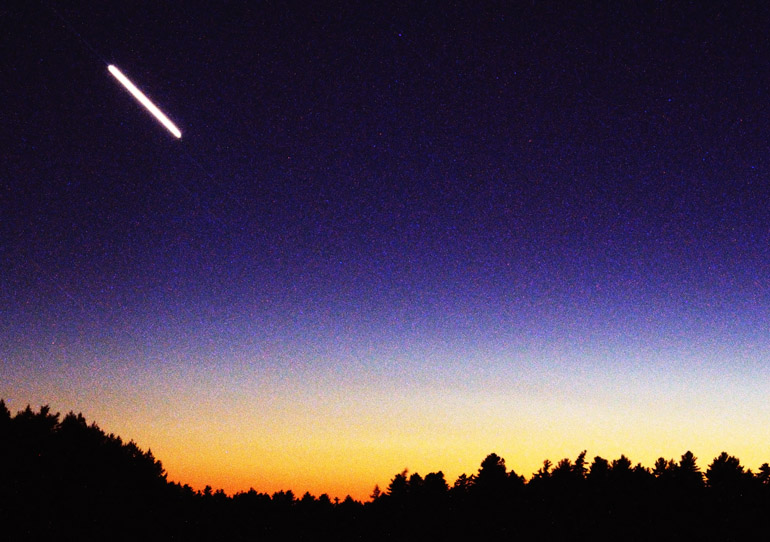
This 8-minute, 10-second exposure was so drastically underexposed that I had to use Photoshop to bring up the lighting and make something out of this shot of Venus. This was taken on a separate night from the top image in this post and earlier, too. The glow from the long-gone sun was still on the horizon.
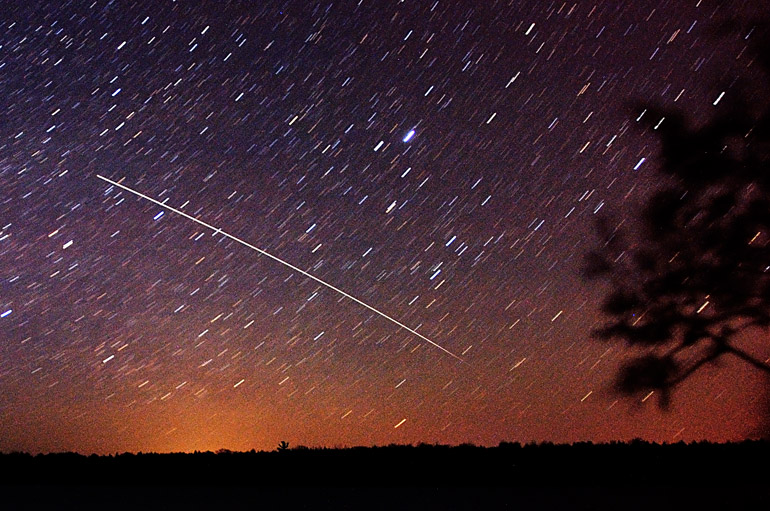
On several of my four nights in Maine, I tried to watch the International Space Station pass overhead. Unlike in Florida, station flyovers happen twice just after sunset and within about an hour of each other. There's usually just a single nightly pass in Florida within an hour after sunset. But for various reasons - bad weather, forgetfulness - this above shot was the only one I could manage the entire week. It's about 3 minutes, 8 seconds long and gives a different look from the shots I usually get in Florida, where what few stars that are visible get lost in the lingering sunshine and city lights.

Focusing on a single part of the north-northwest sky, I caught the faint trail of another satellite passing overhead. Such sights are unachievable without the advantage of Maine's dark sky. This exposure is 3 minutes, 6 seconds long and was taken with my 105mm macro lens.
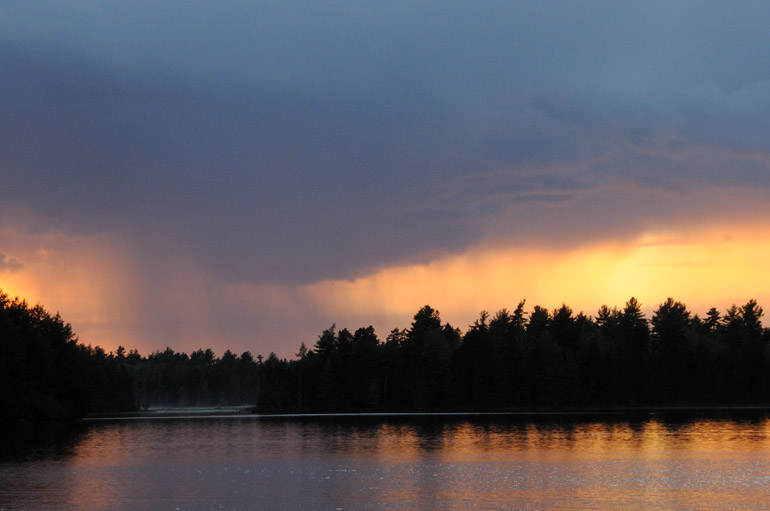
This is actually another stormy shot, but it's one I neglected to share in the earlier post. On my last evening in Maine, a rapidly moving rainstorm is backdropped by the sunset. The wind soon picked up, and the rain came. It was short-lived, though: It was gone in about five minutes, and the sky cleared again.


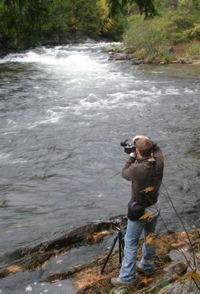
No comments:
Post a Comment